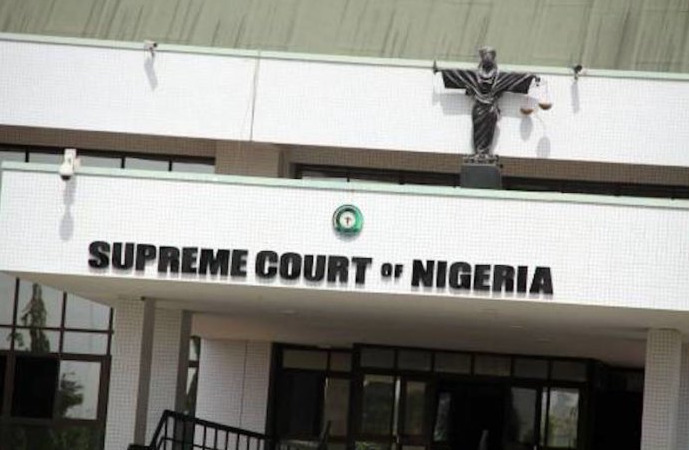Magodo Estate Crisis: Lagos State Returns To S’Court, Seeks Clarifications On Judgement

Lagos State Government has approached the Supreme Court to seek further directives and clarifications on how to implement the judgement it gave in respect of the dispute it has with the judgement creditors, known as the Shangisha Landlords Association.
The Association had gotten a judgement by the Supreme Court mandating the Lagos State Government to allocate 549 parcels of land to them, and on account of this, they asked the government to issue the Association a global Certificate of Occupancy for all the 549 plots.
The government is contesting this and has notified the judgement creditors that each member would be issued a letter of assignment, stating that it was also concerned about the dispute within the Association on who should represent them.
According to a statement issued by the Commissioner for Information & Strategy, Gbenga Omotoso,
Following the intervention of Lagos State Governor Babajide Sanwo-Olu, officials of the state government and representatives of the Shangisha Landlords Association (the judgment creditors) held a series of meetings at which both parties explored the possibility of complying with the judgment of the Supreme Court.
At the said meetings two issues arose: There was a serious division among the judgment creditors as to who controlled or had the right to represent the Association; and the demand by the judgment creditors that a single global Certificate of Occupancy should be issued in the name of the Association as opposed to the position of the State Government that each of the 549 members of the Association would be given allotment letters individually.
Given the sharp divide between the two factions of the judgment creditors on who has authority to represent the Association and the disagreement regarding whom the Certificate of Occupancy should be issued (collectively or individually), the State Government has approached the Supreme Court to seek further directives and clarifications on both issues.
The Judgment Creditors have been served with the application.
The State Government, however, wishes to reiterate its commitment to complying with the judgment of the Supreme Court once these two issues are resolved.
In December last year, stern-looking policemen from the Force Headquarters in Abuja stormed the Magodo II estate to enforce the Supreme Court judgement giving possession of the land to the Magodo Landlord Association, causing panic among residents and homeowners who thouught they were being attacked by land grabbers.
It all began 65 years ago when the then military government in Lagos State acquired the land from the original owners for ‘overriding public interest’. These aborigenes said they were not compensated but watched in utter disbelief when they started seeing the government petition the land for sale to their friends and associates. Their disagreement with the government over this alleged betrayal of trust compelled them to seek redress in the high court, which upheld their plea. The Lagos State Government approached the appellate court and lost to the original land owners. Six years ago they lost to the original owners at the Supreme Court, which reached a judgement that 549 plots of land be given to the original land owners. The judgement was kept in limbo and not enforced until recently when the Attorney General of the Federation, and Commissioner of Justice, Abubakar Malami SAN, enforced it by getting the Inspector General to send a Commissioner of Police and other officers and men from Force Headquarters in Abuja to swoop on the property, making the bewildered homeowners and residents that they were being attacked by land grabbers.

Justin Nwosu is the founder and publisher of Flavision. His core interest is in writing unbiased news about Nigeria in particular and Africa in general. He’s a strong adherent of investigative journalism, with a bent on exposing corruption, abuse of power and societal ills.













